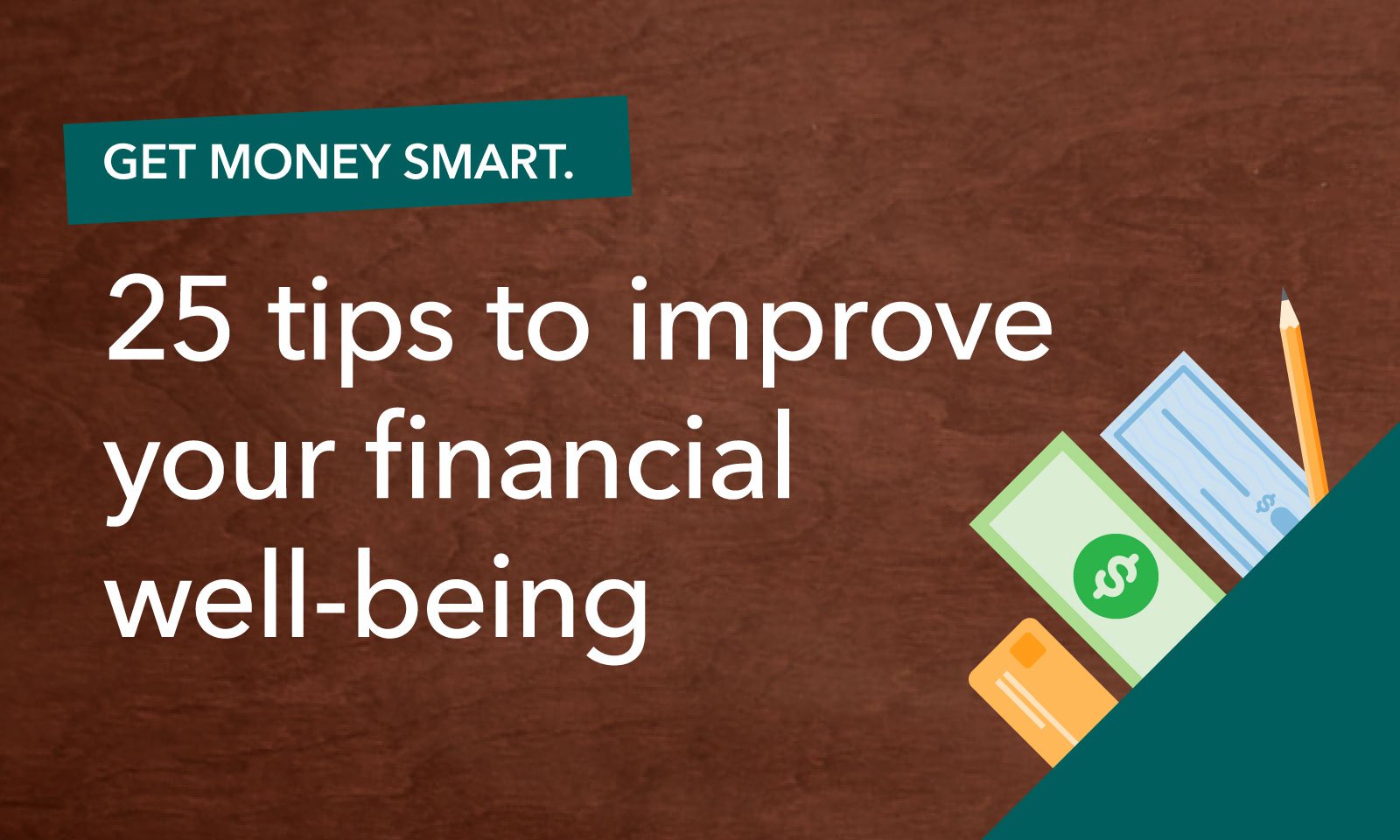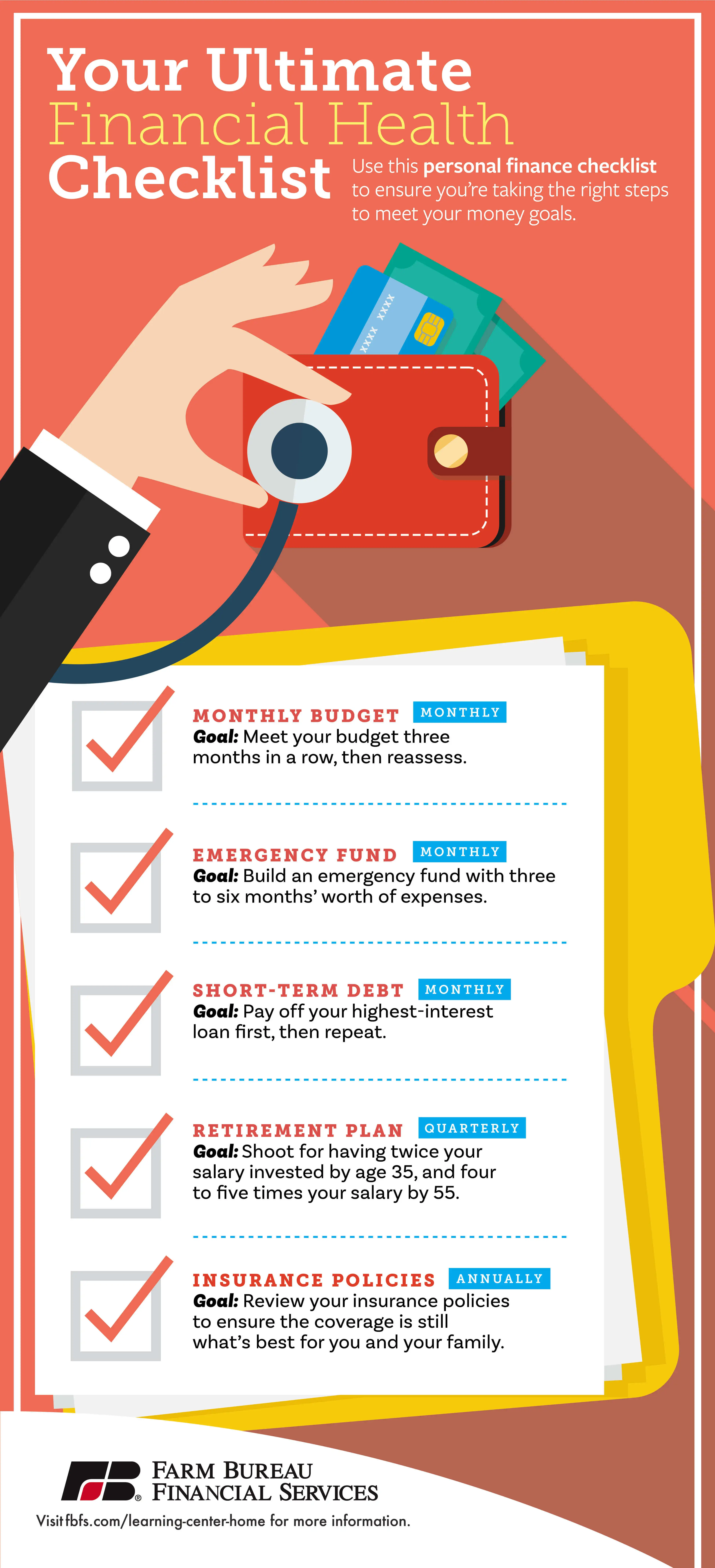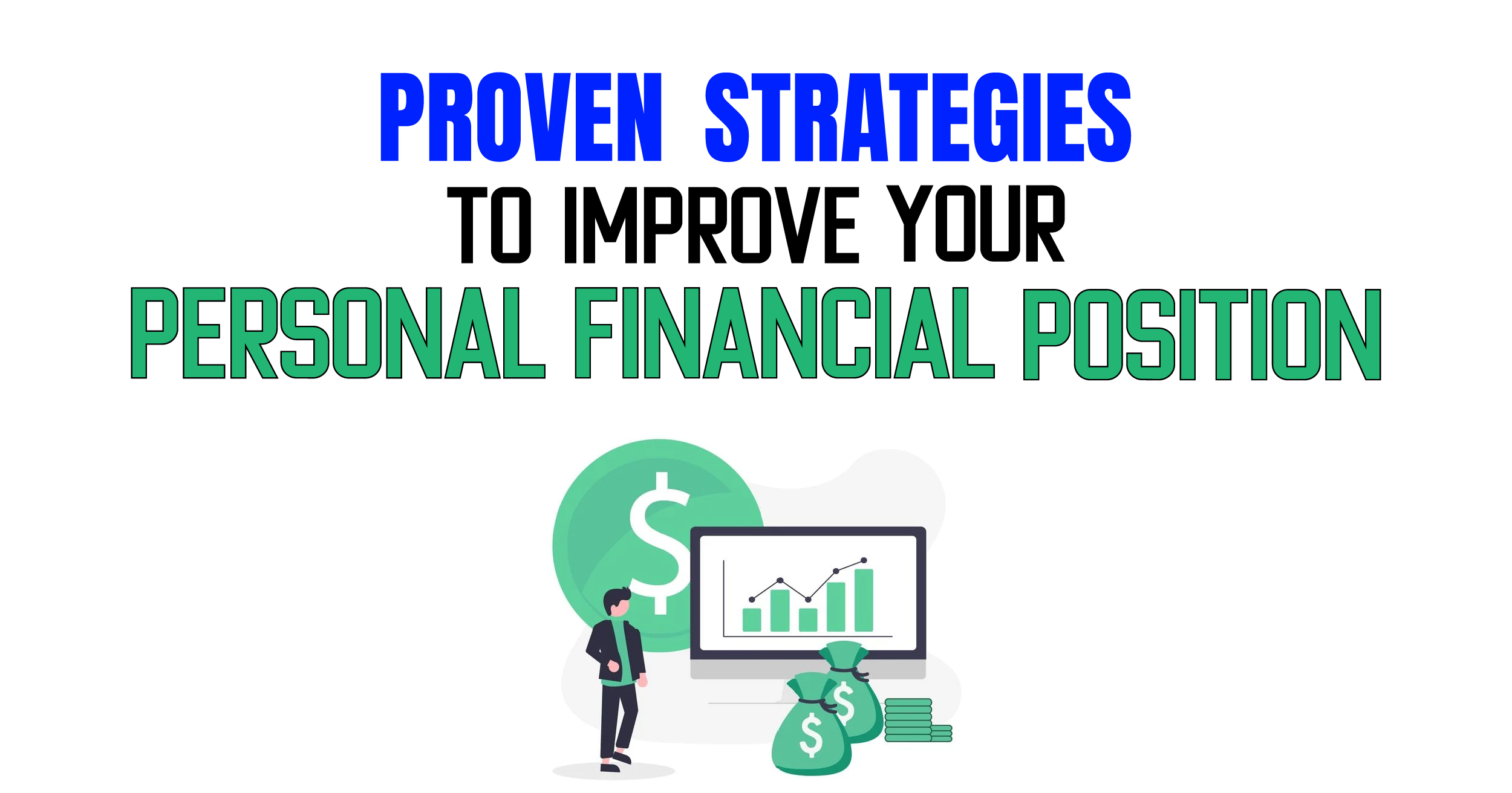To improve your personal financial position, create a budget and reduce unnecessary expenses. Increase your income through additional work or investments.
Taking control of your finances can significantly enhance your financial health. Start by creating a detailed budget to track your income and expenditures. Identify areas where you can cut back on unnecessary spending. This disciplined approach will help you save more money over time.
Consider increasing your income by taking on side jobs or investing in opportunities that offer good returns. Financial stability comes from a balanced approach of saving and earning more. Consistently monitoring your financial progress and making adjustments as needed will lead to a stronger financial future. Remember, small steps taken consistently can lead to significant improvements.
Assessing Current Financial Status
Understanding your financial health starts with assessing your current financial status. This foundation allows you to make informed decisions and set realistic goals. Let’s break down the process into manageable steps.
Tracking Income And Expenses
Tracking income and expenses helps you see where your money goes. Start with listing all sources of income, such as salary, freelance work, or rental income. Use a spreadsheet or financial app to record this data.
| Income Source | Monthly Amount |
|---|---|
| Salary | $3,000 |
| Freelance | $500 |
| Rental Income | $800 |
Next, list your monthly expenses. Divide them into categories such as housing, utilities, groceries, and entertainment. This gives a clear picture of your spending habits.
| Expense Category | Monthly Amount |
|---|---|
| Housing | $1,200 |
| Utilities | $150 |
| Groceries | $300 |
| Entertainment | $200 |
Net Worth Calculation
Calculating your net worth provides a snapshot of your financial health. Start by listing all your assets. Include cash, investments, property, and valuable items.
- Cash: $5,000
- Investments: $15,000
- Property: $150,000
- Car: $10,000
Next, list your liabilities. Include mortgage, car loans, student loans, and credit card debt.
- Mortgage: $100,000
- Car Loan: $5,000
- Student Loans: $20,000
- Credit Card Debt: $2,000
Subtract your liabilities from your assets to find your net worth.
Net Worth = Total Assets - Total Liabilities
Net Worth = ($5,000 + $15,000 + $150,000 + $10,000) - ($100,000 + $5,000 + $20,000 + $2,000)
Net Worth = $180,000 - $127,000
Net Worth = $53,000
Understanding these numbers helps you plan for the future. It also identifies areas for improvement. Regularly reviewing your financial status is essential for long-term success.
Setting Financial Goals

Setting financial goals is crucial for improving your personal financial position. These goals provide a roadmap for your financial journey. They help you stay focused and motivated. Let’s explore the importance of short-term objectives and long-term visions.
Short-term Objectives
Short-term objectives are goals you plan to achieve within a year. They are the building blocks of your financial plan. Here are some examples:
- Create a budget: Track your income and expenses.
- Build an emergency fund: Save three months of expenses.
- Pay off small debts: Clear credit card balances.
- Increase savings: Save a specific amount each month.
Short-term objectives are easier to achieve. They provide quick wins and build confidence. They also set the foundation for bigger financial goals.
Long-term Visions
Long-term visions are goals you aim to achieve in the future. They usually take more than a year to accomplish. Here are some examples:
- Buy a home: Save for a down payment.
- Retirement planning: Invest in retirement funds.
- Children’s education: Save for college tuition.
- Start a business: Accumulate capital for your venture.
Long-term visions require patience and consistent effort. They often need more planning and resources. But achieving them brings significant rewards.
| Goal Type | Examples |
|---|---|
| Short-Term Objectives |
|
| Long-Term Visions |
|
Setting both short-term and long-term goals is essential. It ensures you have a balanced financial plan. This approach keeps you on track and helps you achieve financial stability.
Creating A Budget
Creating a budget is a crucial step in improving your financial position. It helps you understand where your money goes and how to manage it better. A well-planned budget can reduce financial stress and increase savings.
Monthly Budget Plan
A Monthly Budget Plan is essential to track your income and expenses. Start by listing all sources of income. This includes your salary, side jobs, and any other earnings.
| Income Source | Monthly Amount |
|---|---|
| Salary | $3,000 |
| Freelance Work | $500 |
| Rental Income | $700 |
Next, list your monthly expenses. Include fixed costs like rent, utilities, and variable costs like groceries and entertainment.
| Expense | Monthly Amount |
|---|---|
| Rent | $1,200 |
| Utilities | $150 |
| Groceries | $400 |
| Entertainment | $200 |
Subtract your total expenses from your total income. This shows your monthly cash flow. Aim for a positive balance to save money each month.
Adjusting For Irregular Expenses
Irregular expenses can disrupt your budget. Plan for these costs by setting aside money each month.
- Car repairs
- Medical bills
- Annual subscriptions
Calculate the average annual cost of these expenses. Divide by 12 to find the monthly amount to save.
| Expense | Annual Cost | Monthly Saving |
|---|---|---|
| Car Repairs | $1,200 | $100 |
| Medical Bills | $600 | $50 |
| Subscriptions | $240 | $20 |
Include these monthly savings in your budget. This ensures you have funds available for unexpected costs.

Credit: www.linkedin.com
ทดลองเล่นสล็อต PG เว็บตรง – สนุกฟรี ไม่มีสะดุด ตลอด 24 ชั่วโมง
หากคุณกำลังมองหาโอกาสในการ ทดลองเล่นสล็อต PG https://tacosandmargaritasmansfield.com/ เว็บตรง โดยไม่ต้องเสียเงินและไม่มีเงื่อนไขยุ่งยาก JOIN999 คือแพลตฟอร์มที่ให้คุณสัมผัสประสบการณ์เล่นสล็อตจากค่าย PG SLOT แบบเต็มรูปแบบ เว็บตรงไม่ผ่านเอเย่นต์ มาพร้อมระบบที่เสถียร เล่นได้ลื่นไหล ไม่เด้ง สนุกได้ทุกที่ทุกเวลา รองรับการเล่นทั้งบนมือถือและคอมพิวเตอร์
เกมสล็อต PG ที่แนะนำสำหรับทดลองเล่น
- Mahjong Ways 2 – สล็อตไพ่นกกระจอกที่ได้รับความนิยมสูงสุดจาก PG SLOT
- Lucky Neko – สล็อตแมวนำโชคที่มีตัวคูณโบนัสสูงสุด
- Caishen Wins – สล็อตเทพเจ้าแห่งโชคลาภ เล่นง่าย ได้เงินจริง
- Treasures of Aztec – สล็อตสาวถ้ำ เกมแตกหนัก เล่นสนุก
- Fortune Tiger – เกมเสือนำโชค แตกง่าย กำไรดี
Building An Emergency Fund
Having an emergency fund is a critical part of financial security. This fund can help you cover unexpected expenses without going into debt. Let’s explore how to build this essential financial cushion.
Importance Of Savings
Saving money is important for many reasons. First, it provides a safety net for emergencies. Life can be unpredictable, and having savings can reduce stress. Second, it can help you avoid debt. Without savings, you may need to use credit cards or loans for unexpected costs. Third, it can give you financial freedom. With savings, you can take advantage of opportunities without financial worry.
Steps To Build Fund
Building an emergency fund requires a plan. Here are the steps to follow:
- Set a Goal: Decide how much money you need in your fund. A good rule of thumb is to save three to six months’ worth of expenses.
- Open a Savings Account: Choose a savings account with a good interest rate. This will help your money grow over time.
- Create a Budget: List your income and expenses. See where you can cut costs to save money.
- Automate Savings: Set up automatic transfers from your checking to savings account. This ensures you save regularly without thinking about it.
- Start Small: Begin by saving a small amount each week or month. Every little bit adds up over time.
- Increase Savings Over Time: As you get more comfortable, try to save more. You can increase your savings as your income grows or your expenses decrease.
By following these steps, you can build a strong emergency fund. This will improve your personal financial position and give you peace of mind.
Managing Debt Effectively
Managing debt effectively is crucial for improving your personal financial position. By focusing on debt repayment strategies and avoiding new debts, you can gain control over your finances and reduce financial stress.
Debt Repayment Strategies
Effective debt repayment strategies are essential for reducing debt quickly. Here are some proven methods:
- Snowball Method: Pay off your smallest debts first. This builds momentum and motivation.
- Avalanche Method: Focus on debts with the highest interest rates. This saves money on interest payments.
- Debt Consolidation: Combine multiple debts into one loan. This often results in lower interest rates.
- Balance Transfer: Transfer high-interest credit card debt to a card with lower interest rates.
Avoiding New Debts
Avoiding new debts is critical to maintaining financial health. Here are some tips:
- Create a Budget: Track your income and expenses. This helps you spend within your means.
- Build an Emergency Fund: Save money for unexpected expenses. This prevents the need for new debts.
- Use Cash or Debit: Avoid using credit cards for everyday purchases. This keeps your spending in check.
- Plan Major Purchases: Save up for large expenses. This reduces the need for loans or credit.
By managing debt effectively, you can improve your personal financial position. Use these strategies to gain control over your finances and achieve financial stability.
Investing Wisely
Investing wisely can significantly improve your personal financial position. Smart investments can create wealth over time. Understanding the basics and diversifying your portfolio are key strategies.
Basics Of Investing
To begin investing, you need to understand some fundamental concepts:
- Stocks: Shares of a company that can grow in value.
- Bonds: Loans to governments or companies with interest.
- Mutual Funds: Pools of money invested in various assets.
- Real Estate: Property investments that can appreciate.
Start by assessing your risk tolerance. Higher risk often means higher reward. Consider your financial goals and timeline. Are you saving for retirement or a short-term goal?
Next, open an investment account. You can choose from brokerage accounts or retirement accounts. Many online platforms are beginner-friendly. They often offer educational resources and low fees.
Diversification Techniques
Diversification reduces risk. It involves spreading investments across various assets. This strategy helps protect your portfolio from market volatility.
Here are some techniques for diversifying:
- Asset Allocation: Divide your investments among different asset classes. For example, stocks, bonds, and real estate.
- Geographic Diversification: Invest in both domestic and international markets. This can reduce the impact of local economic downturns.
- Sector Diversification: Spread investments across various industries. For instance, technology, healthcare, and energy.
Consider using mutual funds or exchange-traded funds (ETFs). They offer built-in diversification. They pool money from many investors to buy a variety of assets.
Review your investments regularly. Adjust your portfolio to stay aligned with your goals. Rebalancing ensures you maintain your desired asset allocation.
By investing wisely and diversifying, you can improve your personal financial position. Start small, educate yourself, and stay committed to your goals.
Boosting Income
Improving your personal financial position often starts with boosting income. Whether you’re looking to pay off debt or save for a big purchase, increasing your earnings can make a significant impact. Here are some ways to boost your income effectively.
Side Hustles
One effective way to boost income is through side hustles. These are additional jobs you do outside your main job. Side hustles can be flexible and fit into your schedule.
- Freelancing: Offer your skills online. Websites like Upwork and Fiverr can help.
- Driving for ride-sharing apps: Uber or Lyft can provide extra income.
- Online tutoring: Teach a subject you know well. Platforms like VIPKid can connect you with students.
- Handmade crafts: Sell your handmade items on Etsy.
- Rent out a room: Use Airbnb to rent out a spare room.
Career Advancement
Advancing in your career can lead to a higher income. This can involve gaining new skills or taking on more responsibilities at work.
- Additional training: Take courses to gain new skills. Websites like Coursera offer a variety of courses.
- Certification programs: Get certified in your field. Certifications can make you more valuable to employers.
- Networking: Attend industry events. Networking can open new job opportunities.
- Seeking promotions: Ask for a promotion at your current job. Show your boss your achievements.
- Switching jobs: Sometimes, a new job can offer a better salary. Research and apply for positions that match your skills.
By focusing on side hustles and career advancement, you can effectively boost your income. These strategies can help you improve your personal financial position.

Credit: www.consumerfinance.gov
Monitoring And Adjusting
Improving your personal financial position requires constant monitoring and adjusting. Keeping an eye on your finances helps you stay on track. It’s crucial to be proactive and make changes as needed.
Regular Financial Reviews
Regular financial reviews are essential. Check your bank statements monthly. Track your spending habits. Identify areas to cut costs.
Use a table to organize your finances:
| Expense Type | Monthly Cost | Annual Cost |
|---|---|---|
| Rent/Mortgage | $1,200 | $14,400 |
| Utilities | $200 | $2,400 |
| Groceries | $400 | $4,800 |
Identify unnecessary expenses and cut them. Create a budget. Stick to it.
Adapting To Life Changes
Life changes can impact your finances. Adapt accordingly. If you get a raise, save more. If you lose a job, cut non-essential expenses.
Here are some tips:
- Build an emergency fund.
- Review your insurance policies.
- Re-evaluate your financial goals.
Stay flexible and be ready to adjust your plans. Keep your finances healthy.

Credit: www.utahfarmbureau.org
Frequently Asked Questions
How Can I Get Better At Financial Position?
Improve your financial position by budgeting, saving, investing, reducing debt, and increasing income. Track expenses and set financial goals.
What Is The 50/30/20 Rule?
The 50/30/20 rule is a budgeting guideline. Allocate 50% of income to needs, 30% to wants, and 20% to savings and debt repayment. This helps manage finances effectively.
What Are Some Ways You Can Improve Your Financial Status?
Save consistently, reduce unnecessary expenses, increase income streams, invest wisely, and build an emergency fund. Track spending habits and set financial goals.
How Do You Build A Strong Financial Position?
Build a strong financial position by budgeting wisely, saving consistently, reducing debt, investing smartly, and diversifying income sources.
Conclusion
Improving your personal financial position involves budgeting, saving, and smart investing. Practice these habits to see growth. Continuously educate yourself on financial literacy. Stay disciplined and make informed decisions. By following these steps, you can achieve financial stability and peace of mind.
Start today and watch your financial health improve.

